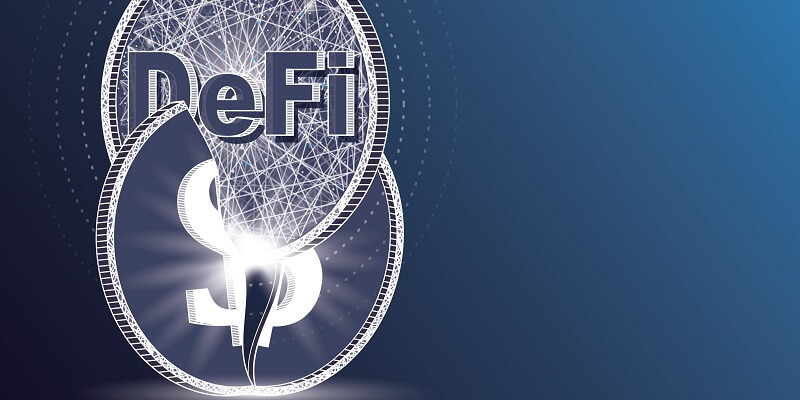The ever-growing decentralized finance (DeFi) ecosystem continues to captivate the financial world, with billions of dollars in daily trading volume being generated. However, this flourishing industry also faces challenges, as evidenced by significant losses of funds from exploits and scams in the second quarter of 2023. In this article, we will delve into the expanding DeFi landscape, covering topics such as incurred losses, innovations in lending, token standards, network upgrades, and the performance of DeFi tokens.
Overview of the DeFi ecosystem’s growth and trading volume
The DeFi industry has experienced exponential growth, fueled by its promise of democratizing finance and providing individuals with greater control over their assets. With decentralized applications (dApps) offering a wide range of financial services, the sector has attracted billions of dollars in daily trading volume, further solidifying itself as a disruptive force in the traditional financial landscape.
Statistics on losses from DeFi exploits in Q2 2023
Unfortunately, the second quarter of 2023 witnessed a significant sum of over $208 million being exploited and hacked from various DeFi protocols. Alarmingly, only a fraction of $4.5 million was recovered, resulting in total losses exceeding $204 million. These exploits highlight the need to strengthen security measures and diligently address vulnerabilities to safeguard user funds.
DeFi lending and borrowing
Maple Finance’s decision to offer direct loans to borrowers fills the void left by bankrupt major lending protocols like BlockFi. The DeFi lending protocol Maple Finance has innovatively chosen to provide direct loans to borrowers. By moving away from solely relying on pool delegates to provide capital, Maple Finance aims to offer resilience and stability to borrowers seeking lending options within the DeFi space.
Impact of major lending protocol bankruptcies on the DeFi industry
The bankruptcy of major lending protocols, such as BlockFi, has sent shockwaves through the DeFi industry. These incidents have highlighted the importance of robust risk management practices and collateral management to mitigate the impact of defaults. The resilience demonstrated by projects like Maple Finance showcases the adaptability of DeFi platforms as they seek to address market demands and create sustainable lending ecosystems.
Adoption and popularity of Bitcoin’s ERC-20 token standard
The adoption of token standards plays a crucial role in facilitating interoperability and ease of use within the DeFi ecosystem. Bitcoin’s ERC-20 token standard has gained significant popularity, attracting a myriad of use cases and token offerings leveraging the Bitcoin network. Its compatibility with existing Ethereum infrastructure enables seamless integration between the two leading blockchain platforms.
Integration of ERC-20 support by leading wallet service providers
The growing prominence of the ERC-20 token standard has spurred major wallet service providers to add support for this standard. By enabling users to store, send, and receive ERC-20 tokens alongside other cryptocurrencies, these wallet providers expand access to decentralized finance, driving further adoption and liquidity in the DeFi space.
Benefits and implications of BRC-20 token standard for the DeFi ecosystem
The BRC-20 token standard plays a pivotal role in enhancing liquidity, cross-chain compatibility, and smart contract functionality within the DeFi ecosystem. This increased interoperability not only benefits users but also fosters collaboration between different blockchain networks, fueling innovation and fostering a more inclusive financial landscape.
Increase in transactions on the Optimism network after the Bedrock upgrade
The recent Bedrock upgrade on the Optimism network, a Layer 2 scaling solution for Ethereum, experienced a surge in transactions. Optimism’s implementation of various scaling techniques and improved infrastructure resulted in a 67% increase in network activity. This surge substantiates the scalability benefits of Layer 2 solutions and their potential to alleviate network congestion in the DeFi ecosystem.
Positive outcomes and implications of the upgrade for the DeFi industry
The successful Bedrock upgrade on the Optimism network signifies a major milestone for the DeFi sector. Enhanced scalability and reduced transaction costs increase accessibility and usability, attracting more users to DeFi applications. This upgrade further emphasizes the industry’s commitment to continuous improvement and scalability to meet surging demand.
Bullish momentum of the top 100 DeFi tokens in the last week of June
The last week of June witnessed the continued bullish momentum of the top 100 DeFi tokens. With a majority of tokens trading in the green, it is evident that investor confidence and interest in DeFi projects remains strong. This positive market sentiment reflects the industry’s ability to evolve and adapt, despite challenges and occasional setbacks.
The DeFi industry’s remarkable growth has not come without its fair share of challenges. The second quarter of 2023 saw substantial losses from exploits and scams, indicating the need for robust security measures and constant innovation. Nonetheless, the DeFi ecosystem continues to evolve, with lending protocols like Maple Finance adapting to provide direct loans, the integration of token standards like ERC-20 enhancing interoperability, and network upgrades like Bedrock on the Optimism network improving scalability. As the DeFi industry matures, it is imperative to prioritize security, maintain a commitment to innovation, and ensure the sustainable growth of this transformative financial ecosystem.

